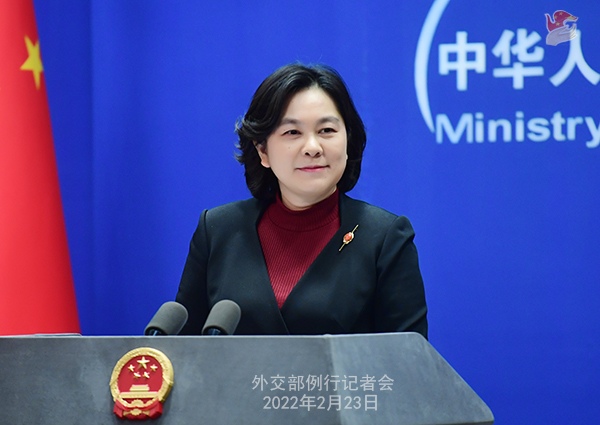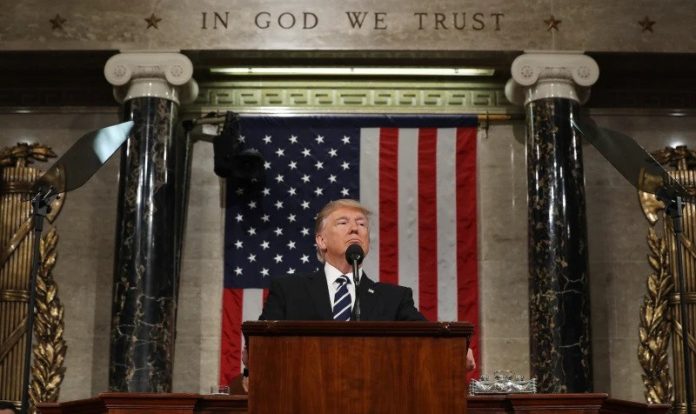The new US National Security Strategy 2017 has three cardinal points: “America First” shall be the underwriter of the US national security strategy; America shall compete against China and Russia; and Climate change is no longer a priority. This strategy explicitly designates China and Russia as top national security threats based on presumption that the two countries “challenge American power, influence, and interests, attempting to erode American security and prosperity.” The policy has also hurled unsubstantiated allegations towards Pakistan. Pakistan has rejected these unfounded accusations that belie facts on ground and trivialize Pakistan’s efforts for fighting terrorism and its unmatched sacrifices. The document has also attracted strong rebuttals from China and Russia.
Every NSS articulated since mandated by the Goldwater-Nichols Act 1986 has either been quickly forgotten or never implemented. Foreign policy follows its own trajectory, wars are declared whimsically, allies go their own way, unforeseen threats emerge more frequently than those forecast in the NSS. Congress does not appropriate funds in line with NSS predictions.
The NSS is supposed to map out a strategy, but over time, it has degenerated into a rhetorical exercise, pigeonholed by America’s lofty ambitions and misplaced urgencies. Rather than forcing the US government to engage in serious strategic planning, it has become an interesting case study in not doing so. NSS was envisioned to review the United States” “worldwide interests, goals, and objectives”, to “lay out” proposed short-term and long-term uses of the political, economic, military, and other elements of the national power” and “to assess the capabilities required to enact the designated strategy”. It achieves none of these objectives and has since then, become increasingly detached from genuineness.
Presumptions aired by the NSS 2017 about China and Russia are based on America’s perceived assumption that both are trying to extend their power globally, citing China’s island building in the South China Sea and Russian annexation of Ukraine in 2014. Interestingly, earlier Trump had emphasized cooperation and not competition, both with China and Russia. The document has, understandably, skipped reference to Russian meddling in the 2016 US presidential election, even though the matter is under scrutiny and may trigger President Trump’s impeachment, just short of the next US elections in 2020.
Trump’s impressions about China have been fluctuating over the years. China is a “rival in its ambition to dominate Asia,”; he wrote in his 2000 book “The America We Deserve”. It wants to “beat us and own our country,” he tweeted in 2011. However, when Trump visited China last month, he was projecting hyped optimism about the possibility of closer ties between the two. And for Russia, Trump continues to praise President Vladimir Putin and believes a better relationship with him will lead to World peace. This dichotomy indicates that this strategy is not reflective of all of Trump’s aspiration& may be Pentagon has prevailed. Will Trump start to follow the path laid out by his own national security team is hard to believe. Moreover, this NSS document is unlikely to influence the Trump administration’s foreign policy in any meaningful way.
The document also names North Korea and Daesh as global threats. It reiterates the administration’s position that North Korea can’t have a nuclear weapon that can reach the United States on a missile the rest of the World can go to hell and it also says the US will defeat Daesh wherever its members are around the globe. Hence, the US attempts to acquire the right to unilaterally intervene anywhere in the World, that too militarily, on the pretext of presence of Daesh elements there.
To summarize from the American side, the Cold War era is back with a bang, but China and Russia are not likely to take the bait, both cannot afford entrapping by this strategy. NSS also includes Trump’s flagship stupidities like: the border wall; stricter immigration laws to protect the US from so called terrorists coming from six Muslim countries; need for reworking North America Free Trade Agreement, the free-trade deal between the US, Canada and Mexico in order to retrieve the jobs back to America, etc.
Pakistan’s name calling with regard to terrorism is another obsession of Trump, notwithstanding the fact that Pakistan has long been at the forefront in the fight against regional and global terrorism. It is because of Pakistan’s cooperation with the international community that the Al- Qaeda core was decimated from the region. NSS 2017 belies facts on ground and trivializes Pakistan’s efforts for fighting terrorism and in the process its unmatched sacrifices to promote peace and stability in the region.
A malicious campaign is under-way to undo Pakistan’s achievements in the war against terrorism. The US continues to repeat its “do more” mantra and has called Pakistan an epicenter of terrorism and the one exporting terrorism to other countries. The US has also said that all future aid is conditional to Pakistan’s performance in eliminating terrorist hideouts. Surprisingly, the strategy does not talk about terrorist safe havens in Afghanistan.

China and Russia have criticized the United States for its new national security strategy that labels both countries as “competitors” challenging American interests. China has commented that the new strategy has demonstrated a “Cold War mentality”, “We urge the US side to stop deliberately distorting China’s strategic intentions and abandon such outdated concepts as the Cold War mentality and the zero-sum game otherwise it will only end up harming itself as well as others, said Hua Chunying, spokeswoman for China’s foreign ministry. “We hope that the United States can correspond with the trend of the times and the will of the people, put the world and China-US relations in perspective, honour the relevant commitments, and join hands with China to uphold the sound and steady growth of China-US relations,” she added.
Russia has also criticized Trump’s new strategy. “A quick read of the parts of the strategy that mention our country [shows] an imperialist character,” Kremlin spokesman Dmitry Peskov told reporters. Peskov said Russia also does not see itself as a threat to US interests. The new US security strategy shows “an unwillingness to give up the idea of a unipolar world – moreover, an insistent unwillingness, disregard for a multipolar world,” he said. “We cannot agree with an attitude that sees our country as a threat to the United States”, said Peskov.
Trump’s NSS mentions terrorists 58 times, and pledges to “defeat jihadist terrorists,” just as all previous NSS documents have done since 9/11. While drug-induced deaths this year in the US would be 20 times the loss of life due to 9/11 yet the NSS only mentions opioids once. Trump’s NSS assumes that America’s drug problems are exclusively based upon the supply, rather than the insatiable demand from Americans themselves. And the leading grower of opium is a country under American occupation & Afghanistan.
Trump has again claimed that European allies were “delinquent” in paying for security “while we guarantee their safety and are willing to fight wars for them.” The National Security Strategy document also breaks with allies on the threat of climate change, avoiding the term altogether, and instead calling for “energy dominance”. “America’s central position in the global energy system as a leading producer, consumer, and innovator ensures that markets are free and US infrastructure is resilient and secure, it says.
The fact is that the people of the region have recognized the ugly and dark face of Trump’s America, a reincarnation of the “Ugly American”, which is riding the unbridled horse of terror to serve its interests in the world. Indeed, Trump’s first National US Security Strategy is not a strategy at all, the document is an attempt to turn Trump’s “America First” instincts into a foreign policy doctrine, notwithstanding huge gaps between ambitious ends and feeble means.




